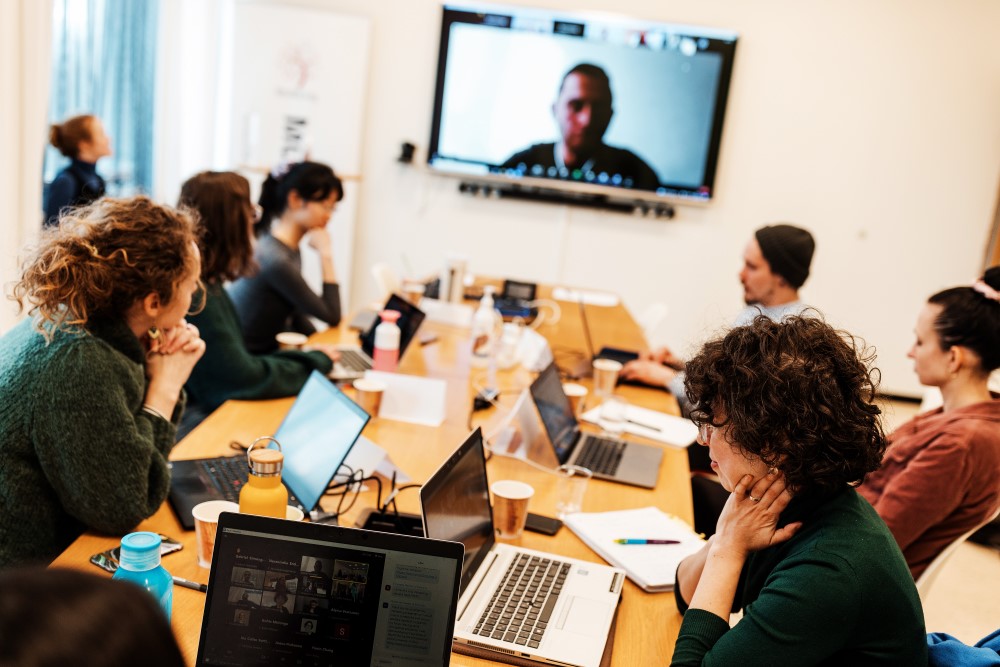How is sociocultural linguistics connected to environmental justice? And how is environmental justice connected to sociocultural linguistics? The course will explore not only how critical research in sociocultural linguistics can shed light on the role of language and communication in environmental (in)justice, but also how sociocultural linguists can support environmental justice struggles.
Sociolinguistic justice can be defined as the “self-determination for linguistically subordinated individuals and groups in sociopolitical struggles over language” (Bucholtz et al., 2014, p. 14), and environmental justice as “the right of all people to share equally in the benefits bestowed by a healthy environment” (Adamson, Joni et al. 2002, p. 4). From this perspective, ‘the environment is not just ‘wilderness areas’ often imagined as separate and distant from people’s daily life, but includes the everyday spaces people live, work and play. However, a growing body of research on the impacts of environmental crises – food and water scarcity, worsening natural disasters, sea-level rise, increasing droughts, deforestation, pollution – shows that they disproportionately impact marginalized communities. Moreover, climate change is recognized as a ‘threat/oppression multiplier,’ exacerbating already-existing inequalities in society along lines of race, class, gender, and ethnicity. Sociocultural linguists working in areas such as conversation analysis, linguistic anthropology, interactional sociolinguistics and critical discourse analysis have long investigated how dimensions of inequality get created, reproduced, or challenged through language. However, as climate change continues to worsen, it will be increasingly important for sociolinguists to consider how environmental injustice is enacted through language, and how sociolinguistic injustice is enacted through people’s unequal material experience of well-being in place and environment.
Admission
For information about enrollment and admission please visit the course webpage. Deadline: June 2.
ECTS
Participants are granted credit on the basis of 1) participation (minimum 80% of course activities); 2) a presentation and discussion of their own work; and 3) serving as a discussant for the presentation of another participant.
Program
Click here to open the program for MultiLing Summer School 2022
Open Lectures
All Open Lectures uses the same Zoom-link: https://uio.zoom.us/j/63502470738
| Day | Time (CEST) | Sessions | Zoom |
|---|---|---|---|
| 12 Sep. | 10.30 - 12.00 |
Radical Scholarship, Ana Deumert, UCT |
Link |
| 14:45 – 16:15 | Distributed Thinking, Alastair Pennycook, MultiLing, UiO | Link | |
| 13. Sep. | 09:00 – 10:30 | The animal turn in sociolinguistics: Acknowledgements by the dairy cow in inter- and intraspecies interaction, Leonie Cornips, Maastricht, KNAW | Link |
| 14:15 – 15:45 | Reflecting on Hope and Anger in Times of Crisis, Ana Deumert, UCT | Link | |
| 14. Sep. | 09:00 – 10:30 | Bringing theory in practice. Posthuman methodology and what the cow makes relevant, Leonie Cornips, Maastricht, KNAW | Link |
| 14:45 – 15:30 | Green Applied Linguistics & Nexus Analysis, Gavin Lamb MultiLing, UiO | Link | |
| 15. Sep. | 09:00 – 10:30 | Language as assemblage, Alastair Pennycook, MultiLing, UiO | Link |
| 14:15 – 15:00 | Ecocultural Stance-Taking, Gavin Lamb MultiLing, UiO | Link | |
| 15:00 – 15:45 | Noticing Multispecies Landscapes, Pierre Du Plessis, OSEH, UiO | Link | |
| 16. Sep | 10:00 – 11:30 | Solidarities as Possibilities?, Ana Deumert, UCT | Link |
| 12:30 – 13:15 | Language Activism, Haley De Korne MultiLing, UiO | Link | |
| 15:30 – 16:00 | Summing up & Goodbye | Link |
Potential methods explored
- Conversation analysis
- Interactional sociolinguistics
- Multispecies ethnography
- Decolonial methodologies
- Posthumanist approaches
- Digital methods
Topics
- Linguistic and communication strategies in environmental justice organizing
- Environmental media
- Identity and intercultural communication
- Embodiment and materiality in sociocultural linguistics
- Digital methods
- Semiotic perspectives on human-environment interaction
- Linguistic diversity, biodiversity, and discourses of endangerment
- Language and environmental conservation
- Multispecies ethnography
- Posthumanist approaches to language and communication
- Ecolinguistic perspectives
- Language in animal rights and biodiversity conservation discourse
- Attitudes, emotions and ideologies
- Institutional discourse and power in environmental communication
- Discourses of (de)commodification and ‘commoning’ of natural resources
- Ecotourism and conservation contexts
- Voice and democratic participation in environmental justice struggles
In sum, the course’s central focus is to develop students’ familiarity with both established and cutting-edge qualitative methods in sociocultural linguistics through a close examination of the linguistic justice/environmental justice nexus. In this way, the course aims to support Ph.D. researchers with different data, analytic methods, and interests in investigating a range of research contexts, regardless of their explicit focus on environmental issues.
Key Questions
- What methods of data collection and analysis can we use to investigate the intersection of sociolinguistic justice and environmental justice?
- How do insights from this research apply to sociolinguistic research in different domains (e.g., translation, policy, workplace communication, pedagogy, tourism, conservation, activism, online communities)?
Learning Outcomes
On successful completion of this course, students will be able to:
- discuss and understand current theoretical and methodological approaches to research on language and communication in environmental justice issues
- make effective use of basic aspects of sociocultural linguistic methods, including interactional, ethnographic, digital and critical discourse research methods
- evaluate and critically analyze theoretical concepts and methodologies employed in research on communication in environmental justice issues
- identify elements of an ethically grounded, reflective practice for language research on social and environmental justice issues.
- apply insights, techniques and ethical concerns gained from this course to future research and teaching practice.
Lecturers
-
Ana Deumert
-
Leonie Cornips
-
Unn Røyneland
-
Toril Opsahl
- Haley De Korne
- Alastair Pennycook
- Pierre du Plessis
- Gavin Lamb
Reading List
TBD. Approx 400 pages, assigned by the lecturers
